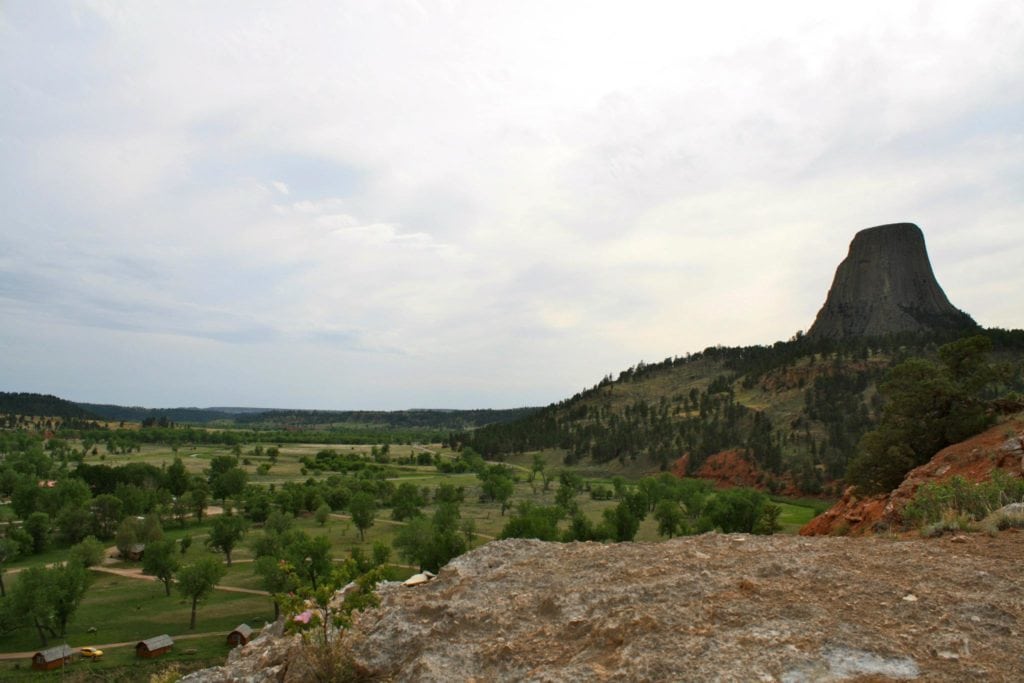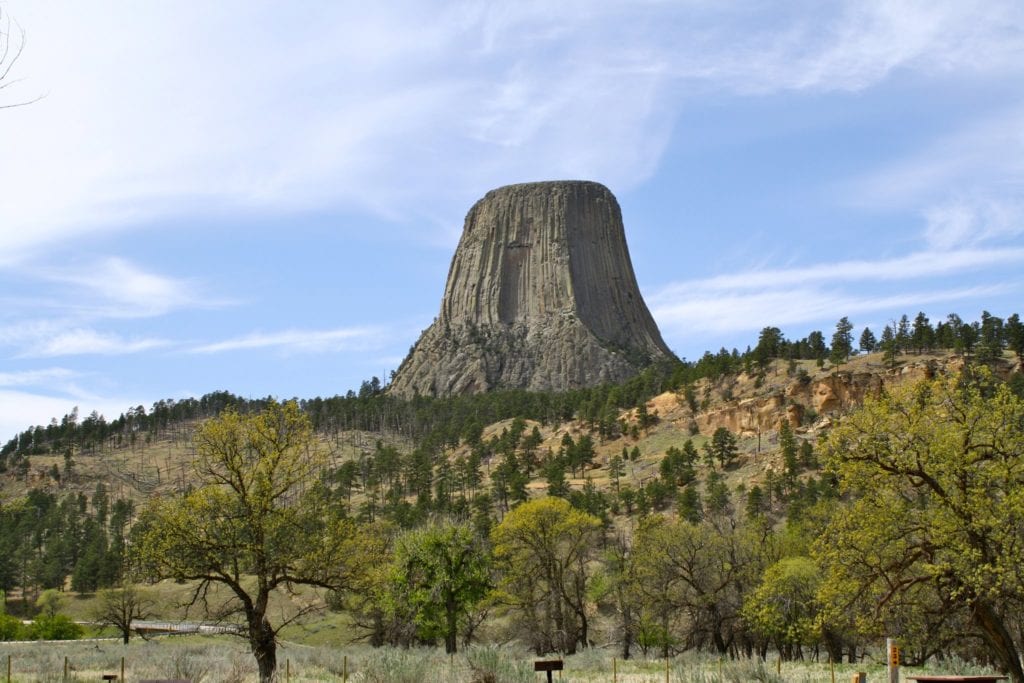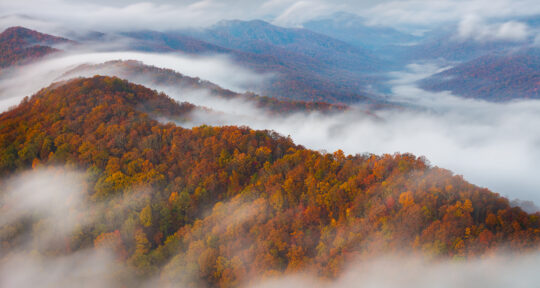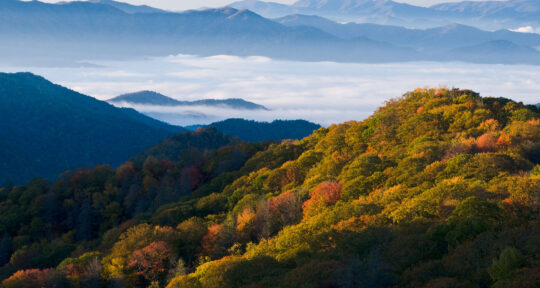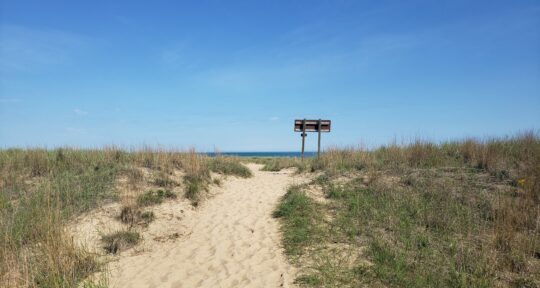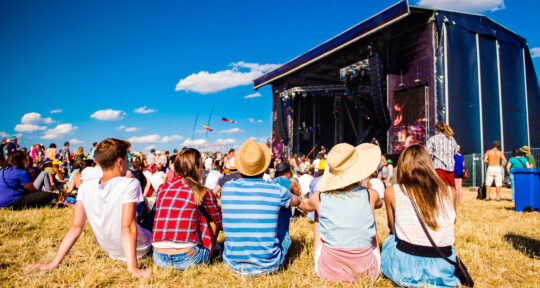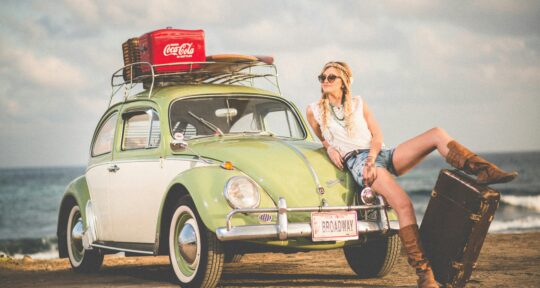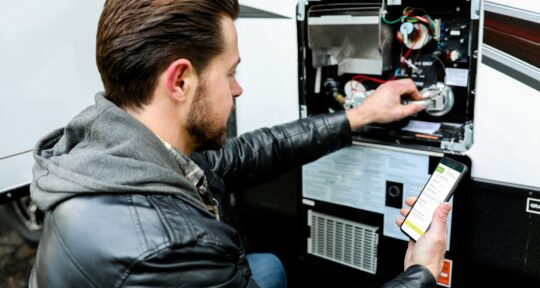On a late spring afternoon, Judy Jones sat on her deck at the North Bend Boat Club—a quaint, little campground 16 miles west of Cincinnati—looking out over the Ohio River. “Even though it’s really muddy right now because of all of the rain, it’s still beautiful and peaceful,” Jones tells me. “I love it here. I will always be a Cincinnati girl.”
Jones—who was born and raised in Cincinnati, Ohio—became a full-time RVer six years ago. That means both Jones and her husband Don (who she affectionately calls “Donny”) do not own a house, apartment, condo, or any permanent structure—they spend all of their time in an RV.
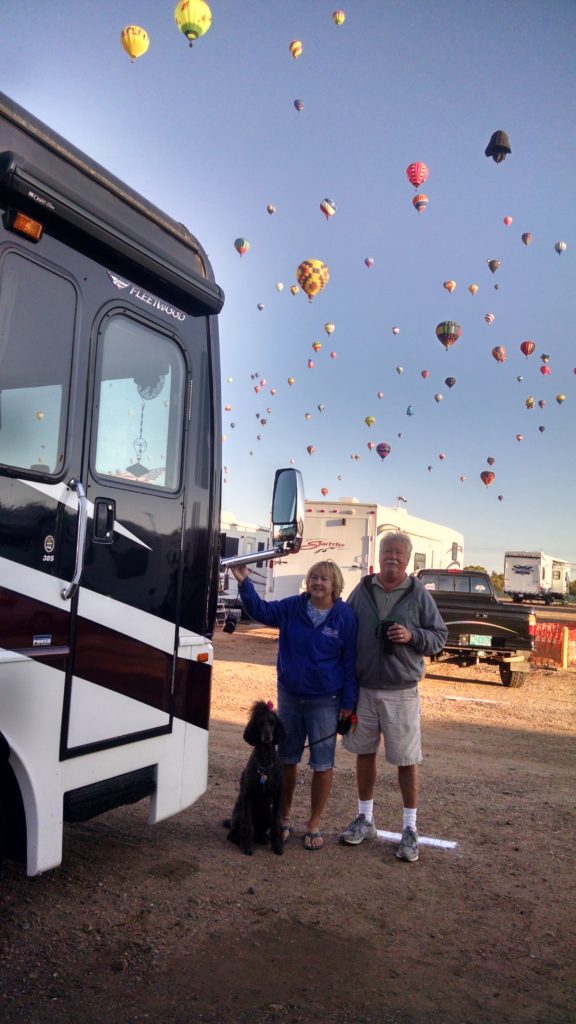
“We still have what I consider two home bases,” she explains. “We usually spend the summers at the [North Bend] Boat Club. And in the winters, we’ll go down to Fort Myers Beach in Florida and camp. But we always take side trips. That’s the beauty of it, you can just pick up and go if you want to.”
The catalyst
The story of how Jones ended up becoming a full-time RVer is somewhat unconventional, but markedly inspiring. Both Jones and her husband worked for a large Cincinnati-based consumer goods company doing consumer research. And after putting in many years of hard work, they both decided to take a buyout and retire early.
“Luckily, Donny and I agreed on a certain lifestyle, which can be hard to find in a partner,” Jones says. “We both wanted to travel, spend more time in Florida, see the country.”
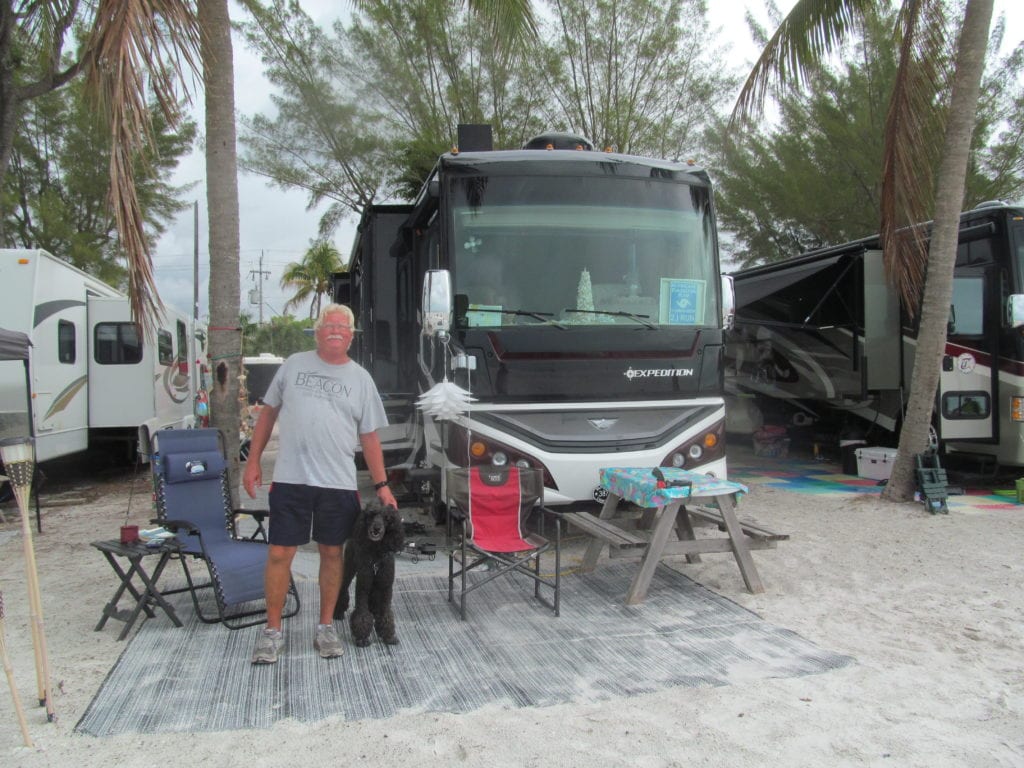
The couple began traveling around in a smaller, Class C RV, but kept their house in Cincinnati—a big Victorian-style home with a five-acre garden. Jones describes it as her “dream home.” But two years into her early retirement, Jones got a phone call. She had been diagnosed with breast cancer. And while she ultimately beat the cancer and is now a 16-year survivor, that diagnosis became the catalyst for her new life.
“I’ll never forget it,” she says. “I was out in the garden thinking about all of the things I still had to do. Mowing the lawn, weeding, laundry, putting out Christmas decorations—I love Christmas decorations, by the way—and I just thought to myself: What am I doing? Why am I spending my precious time doing all of this?”
It was then that both Jones and her husband decided to sell their house, buy a bigger motorhome, and make the switch to full-time RVing.
“It’s very hard to give up all of your possessions,” Jones admits. “But it’s really just stuff, it doesn’t matter. I have this picture that says ‘Sell everything. Keep the dog. Live on the beach.’ and that’s exactly what we did.”

On the road
Over the past six years, Jones and her husband have stayed at countless campgrounds and RV parks, and have seen some unbelievable sites. Some of her most memorable trips include camping at the Hot Air Balloonfest in New Mexico, and staying at the Devils Tower / Black Hills KOA campground in Wyoming. “I’ve been a KOA camper for years,” she says. “The campgrounds are always nice and they always uphold a certain standard.”
In addition to the many incredible sites she’s seen, Jones has also observed changes in both the style of the campgrounds and the demographics of the people who stay at them.
“I think the baby boomers were what made RV sales skyrocket,” she tells me. “Yes, we feel we paid our dues, raised our kids, worked all our lives, and now it’s time to play and enjoy life—but we want to do it comfortably and in style.”
Cowboy boots in front of Devils Tower. | Photo courtesy of KOA Devils Tower / Black Hills KOA. | Photo courtesy of KOA Devils Tower overlooking the KOA campground. | Photo courtesy of KOA
Because of this baby boomer surge, Jones has noticed that campgrounds have gotten bigger and better, with things like more pull throughs, full hook-ups, and quality WiFi. Even the insides of RVs have gotten more accommodating. Jones’ new Class A Diesel RV has a kitchen, full bathroom, and a washer and dryer.
“The convenience of having your ‘house’ with you is so great,” she says. “Not having to pack and unpack all the time, you can sleep in your own bed every night, cook if you want, take your pets. It’s home away from home.”
Advice for other retirees
Jones is living proof that full-time RVing can work, and she’s convinced other retirees can do it, too. In addition to the upgraded campgrounds that make RVing and camping so much easier, Jones also talks about the network of fellow campers and RVers who are willing to help out.
“There are so many networks out there, like Escapees, that offer classes and lessons for those who are new to RVing,” Jones says. “They even provide services like mail and package forwarding, which is something a lot of people don’t think about.”
Many campgrounds will also provide loyalty discounts or rewards programs for repeat visitors. For example, KOA offers something called the Value Kard Rewards program, where KOA campers can receive campground discounts and special promotions.
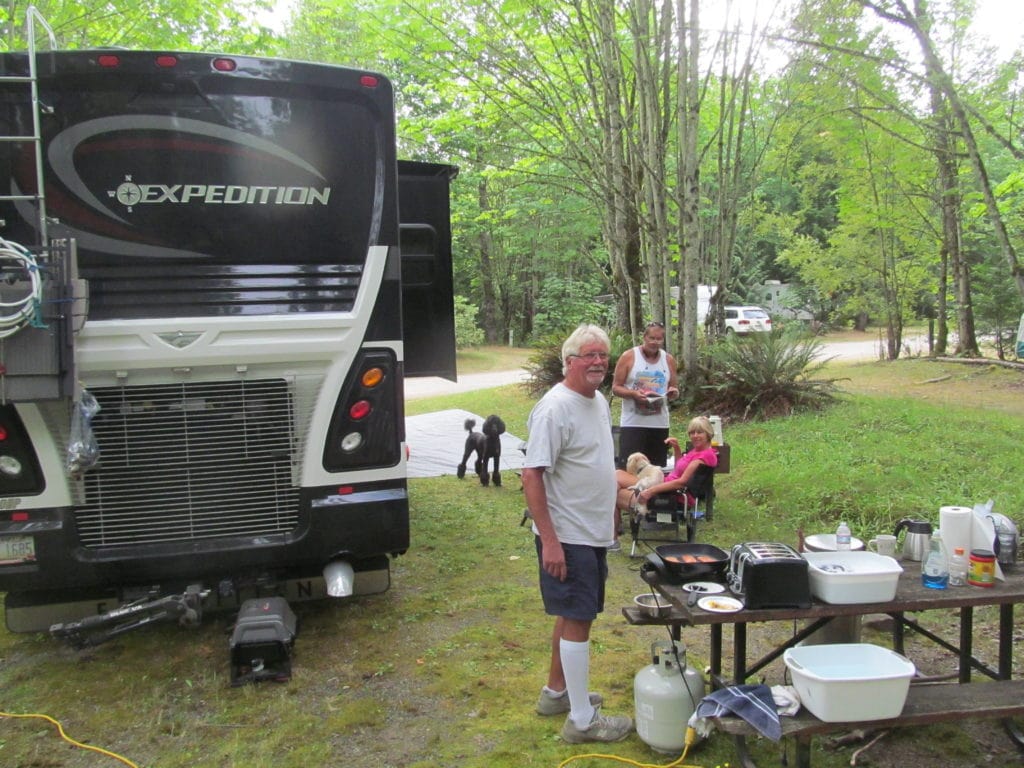
Having been a camper herself for many decades, Jones does note that the transition to RVing was much smoother for her. “It’s much easier to go from camping to full-time RVing because you have a basic knowledge of the outdoors,” she admits. “But I think if you love being outside and being in nature, regardless of age, that’s enough.”
And for anyone who asks how she hasn’t gotten sick of living in such a small space, her answer is simple: She’s always outside.
“We’re really only in [the RV] when we’re driving or sleeping,” she tells me. “I keep waiting to get tired of living in it, but I haven’t gotten there yet. Not even close.”


